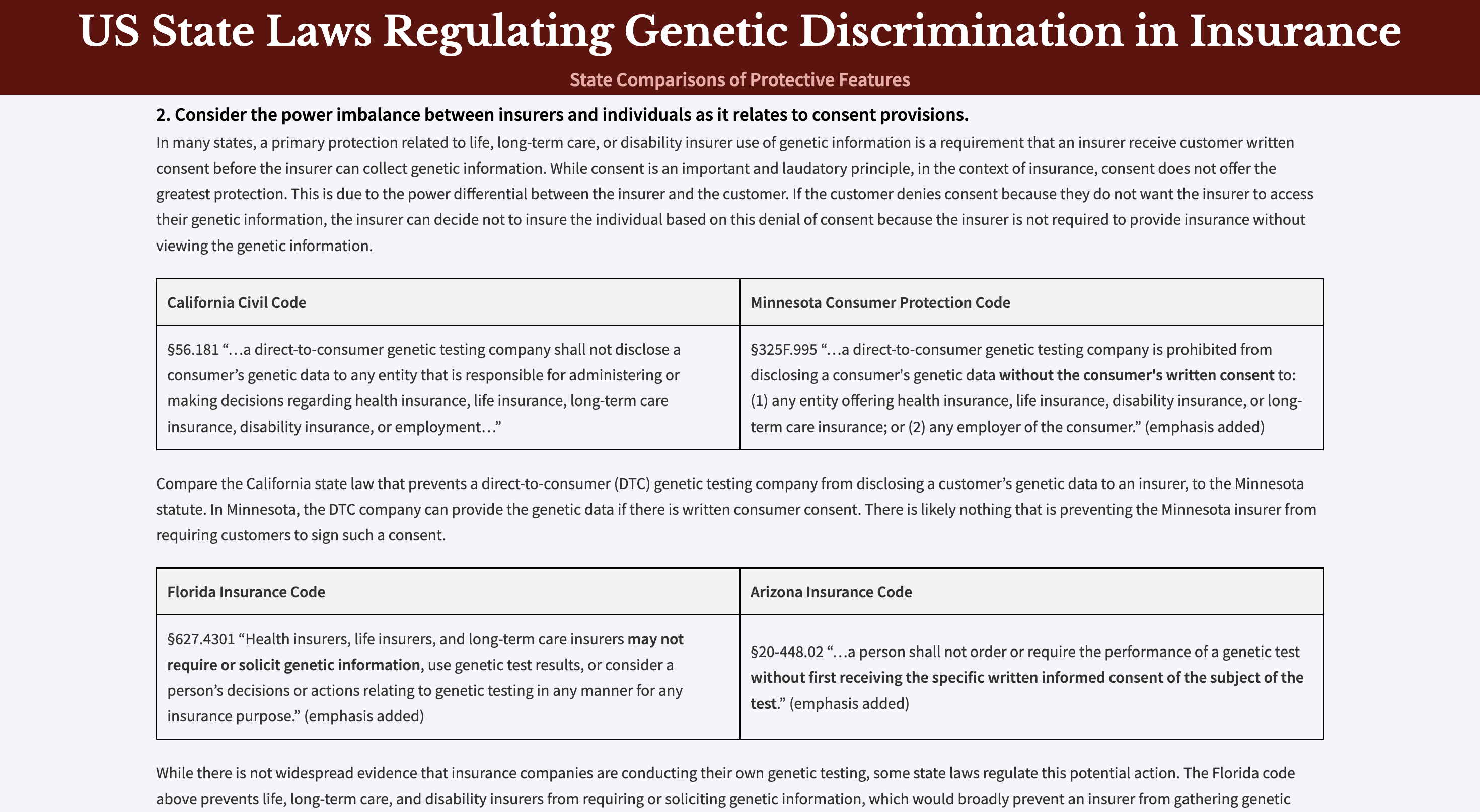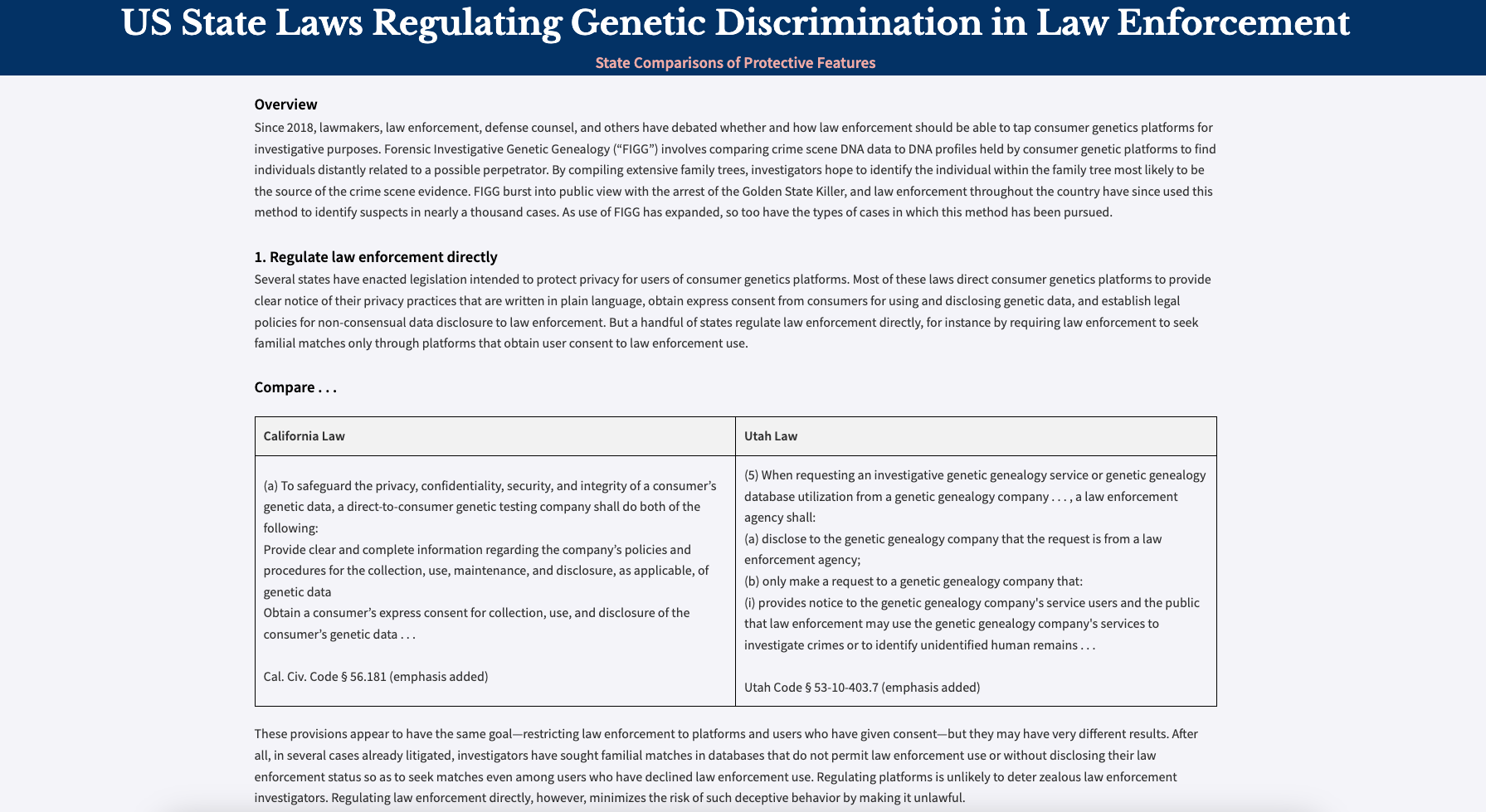Overview
Genetic information is powerful. It can reveal insights into identity, predispositions to disease, family members, and ancestry. It is therefore not surprising that people care deeply about the privacy of their
genetic information. United States federal law is fairly quiet on this front. Federal regulation gives privacy protections for genetic test results within clinical care and research. However, many individuals undergo
genetic testing outside these contexts, such as through direct-to-consumer genetic testing companies. Federal law does little to regulate privacy in this space. Individuals are also worried about how genetic test
results, no matter where they were conducted, might be used against them to discriminate. At the federal level, the Genetic Information Nondiscrimination Act (GINA) prohibits health insurers and employers from
discriminating against individuals on the basis of genetic information, but the law does not cover other entities.
Two of the gaps in federal law most often discussed relate to use of genetic information by non-health insurers and by law enforcement. States have passed a variety of laws in these areas, with varying levels of
protection. The language of the laws often sounds promising, but the public should not be fooled. Many of these laws miss the mark at fully addressing genetic privacy concerns held by the public and many in the
medical and research fields. Bipartisan legislative interest in genetic privacy and non-discrimination nonetheless presents great opportunity and promise to enact more robust legislation. This website maps the status
of these state laws and discusses core protective features that bolster genetic privacy and minimize risks of discrimination.
To explore additional resources, please click here.



